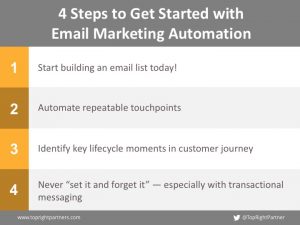After 30 years of running my own business, I know a thing or two about payroll. So much so that I’m now the CEO of an online payroll company, Patriot Software.
I didn’t always know the intricacies of payroll. As a matter of fact, back when I was a young entrepreneur just trying to keep my head above water, I didn’t know anything about payroll. “How do I do payroll?” I asked myself. I knew I had to pay my employees, that was pretty obvious, but all the tax withholdings, deductions, and laws that governed payroll were a mystery to me.
I first learned about what goes into payroll when I handed one of my young employees a paycheck on a Friday and told him to wait until the following week to cash it. To his credit, he did wait. But during that timespan, he took his paycheck home and showed it to his dad–who just happened to work for the State of Ohio. Next Monday, that young employee came to work and told me, “Uh, excuse me, Mr. Kappel, but my dad says that my paycheck should have a pay stub attached to it. He says it’s against the law not to.”
Whoops. Not only was I not providing my employees with pay stubs, but I was breaking the law and had been for months! I had to get compliant, and fast.
Whether you’re a small business owner looking to hire your first employee, or you’ve had employees for awhile, you’re going to want to make sure you’re doing payroll correctly. Here are some steps to help get you started.
1. Consult the IRS.
No, one of your employees does not have to have a father that works for the IRS for you to do this. The IRS has many articles and resources to help you understand federal payroll tax basics and recordkeeping requirements for businesses with employees.
Reading up on these resources will help you in two distinct ways: First, the more you know about payroll rules, the safer you’ll be. Second, better understanding of payroll tax laws means you’ll spend less on an accountant or lawyer to teach you. Being a small business owner is all about wearing every business hat you can so you can keep your money. You may need some initial guidance to start, but you should always strive to learn everything you can about where your money is going, how it gets there, and why. The IRS website is a good place to start.
2. Meet with your accountant.
Chances are, you already have an accountant. If you do, pick their brain.
Even if you plan to handle your payroll tax filings on your own, your accountant can be a great advisor for your business. Your CPA can answer your questions, help you establish your accounts with tax agencies, and recommend an online payroll solution for your business. A good accountant can make all this easily digestible for you.
Your accountant can also explain how to make payroll tax deposits and file payroll tax returns. Be sure to notify your CPA about any IRS notices that you might receive regarding payroll taxes, especially if the CPA’s office will be handling your payroll tax filing.
3. Check state resources.
Your small business payroll program doesn’t just have to comply with federal payroll tax laws—you’ll need to keep track of your state’s tax laws, too. Resources from your state can provide this info. You can locate your state’s employer info at the USA.gov website, as well as the Small Business Development Center for your area.
4. Consult a business mentor.
A business mentor can help you through the bumps of owning a business. They can also answer payroll questions—just ask. They might be able to pass on payroll advice from their personal experience of learning payroll. If you don’t have a mentor, you can find free business advice from SCORE.
5. Attend classes.
The American Payroll Association (APA) offers tools for new employers, including payroll training materials and payroll certification. The APA offers both online and traditional sit-down classes. The online classes are a big plus, especially if you’re a working boss.
How to Successfully Learn Payroll
Think of payroll as those mandatory classes you have to take in college that have nothing to do with your major. You’re spending a lot of money to go to college to get a degree in something you actually care about, not to take all these time sucking, mandatory electives. Well, that’s payroll. It’s not what you got into business to do, and it sucks up a lot of time that you could be putting toward running your own business. I know, because I’ve been there.
However, if you don’t do it, you won’t graduate. Or, in this case, your business will get hit with fines, penalties, audits and other nasty things that could cause you to shut down. Think of the following processes as your cheat sheet.
- Gather all your tax account numbers, including your federal EIN (FEIN) and state identification number if it is different.
- Both you and your employees have to pay payroll taxes. All employers should know about federal income tax, federal unemployment tax, Social Security tax, and Medicare tax. Some employers also need to know about state income tax, state unemployment tax, and local income tax. Find the rates for all applicable taxes before paying employees.
- Find out how frequently you have to deposit each payroll tax. Also, make sure you know what forms to use and where to send them.
- Learn about federal minimum wage and overtime laws. You should also brush up on the minimum wage and overtime laws for your state because they are sometimes stricter.
- Know the IRS recordkeeping requirements for payroll taxes and other employment documents.
- Determine how to handle payroll deductions for fringe benefits and wage garnishments.
- Create a free Electronic Federal Tax Payment System (EFTPS) account and familiarize yourself with it so you can make electronic federal tax payments. Your state might also have a similar electronic tax payment system.
Payroll has to be done if you want to have employees, but it doesn’t have to be a pain. Once you gather all the payroll information you need, it should be easier for you understand the parts of payroll and to apply your new knowledge.
Business & Finance Articles on Business 2 Community(87)







